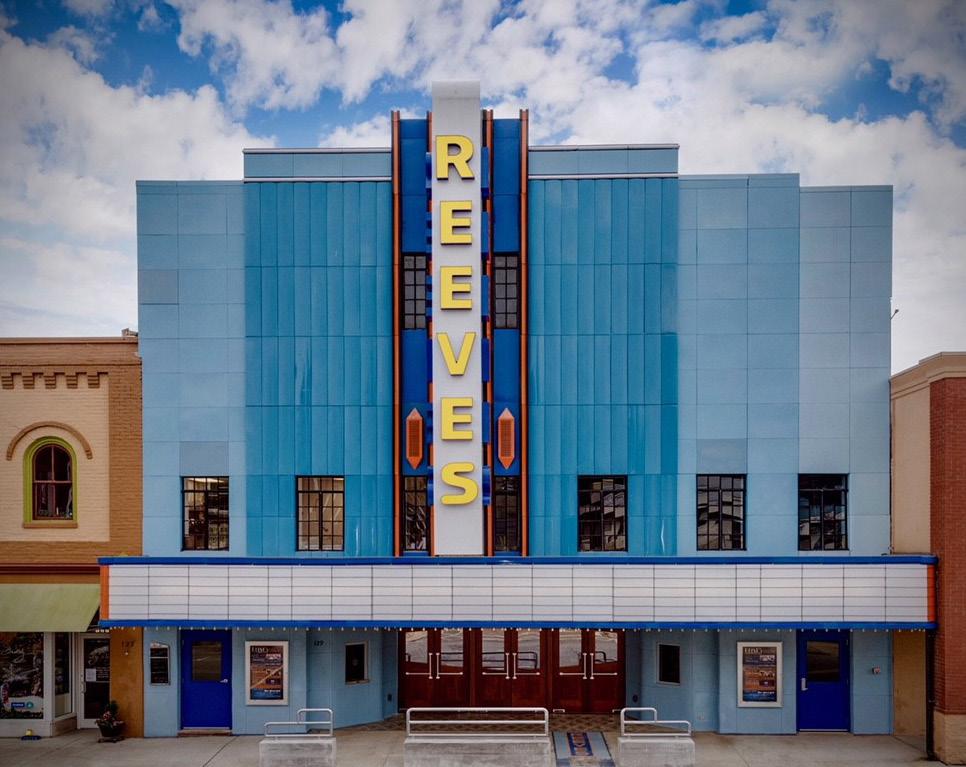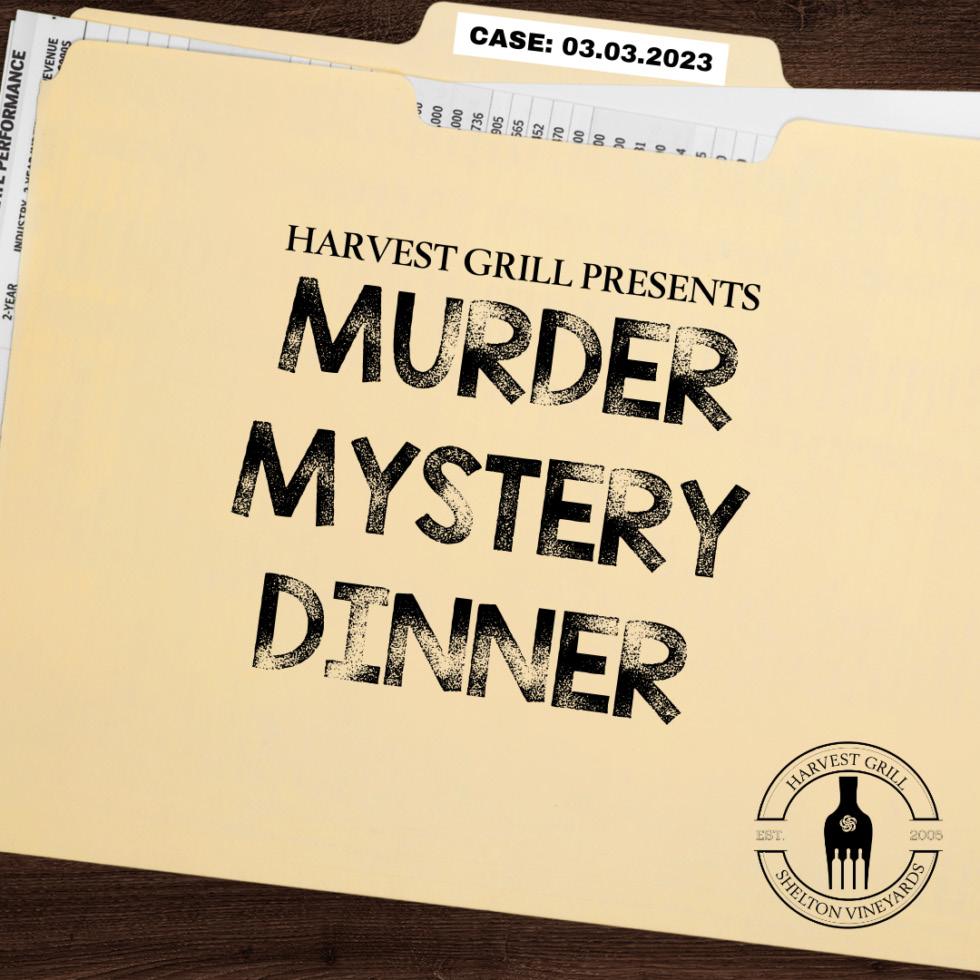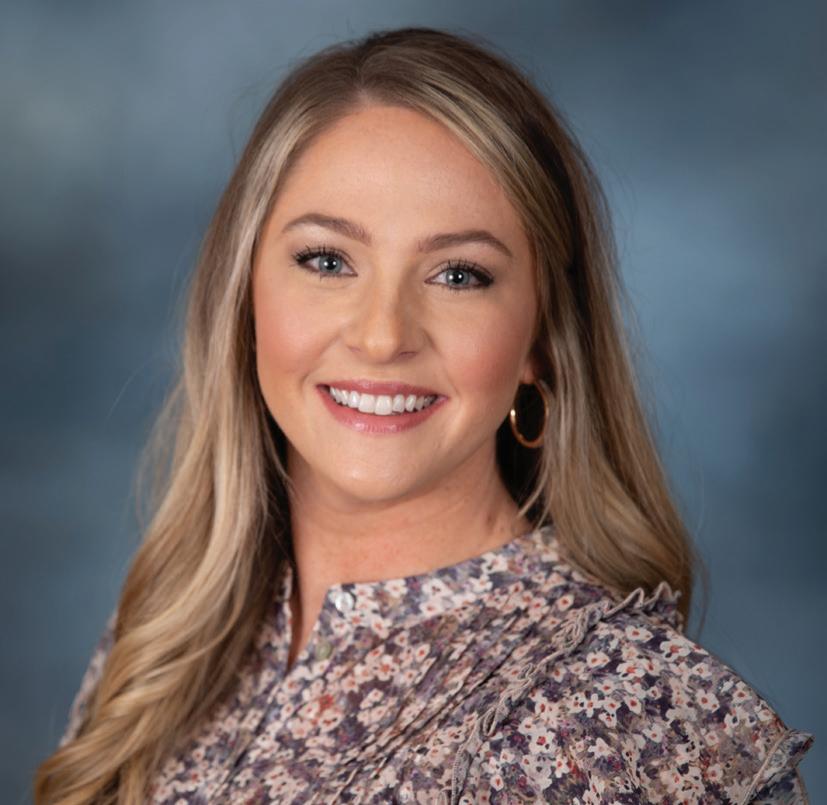
4 minute read
Happy 50th Anniversary National Ag Day!
In March 1973, the Agriculture Council of America instituted National Ag Day to educate the public about the many different segments of the agriculture industry. March 21, 2023, marks the fiftieth anniversary of National Ag Day.

Advertisement
The Agriculture Council of America is an organization composed of leaders in agriculture, food, and fibers. The council’s core values are reflected in their desire that every American should:
• Understand how food and fiber products are produced.

• Appreciate the role agriculture plays in providing safe, abundant, and affordable products.
• Value the essential role of agriculture in maintaining a strong economy.
• Acknowledge and consider career opportunities in the agriculture, food, and fiber industry.
The council shares “each American farmer feeds more than 166 people ... a dramatic increase from 25 people in the 1960s. Quite simply, American agriculture is doing more –and doing it better. As the world population soars, there is an even greater demand for the food and fiber produced in the United States.”
Thanks to American farmers, we can enjoy three hearty meals a day (and usually a few snacks in between.) Our pet foods are also available thanks to the hard work of American farmers. And unless we purchase only items made 100 percent of synthetic fibers, we all wear clothing made from various agricultural products.
The next time you’re perusing the meat counter at the grocery store or snuggling in your warm wool socks, take a moment to realize and appreciate just what it takes to make those things possible. The animal that provided, the farmer who properly stewards those animals, the veterinarian who helps ensure the health and safety of both the live animals and the meat products offered. And many more folks at various steps along the way.
Educate yourself about how the products you consume and use every day made it to you. Get to know your local farmers and their families. Ask them how they raise and process animals. Ask them how they grow grains and what it takes to get from the grain field to the cereal box. Ask them why they do what they do. Find ways to support your local farmers. More likely than not, you will find that they are your neighbors and friends.
You can learn more about National Ag Day at the site www.agday.org/
by Martha Bassett
researching good opener and closer songs, because I need them on every single show.

Do a little bit of weeding regularly instead of trying to do it all at once, and weed after it rains when it’s easiest. There are so many variables to gardening…and so many moving pieces to a show. If I let the work pile up, the show will suffer.
I grew up on a small farm in Mount Nebo, West Virginia. There were sheep, cattle, pigs, chickens, cats, and dogs. The larger fields were planted with corn and wheat, or were bailed for hay. But the garden that fed our family seemed enormous, mostly because of the endless, repetitive manual labor from spring through fall. I hoed potatoes, picked beans, strung beans, and shucked corn. When I grew up, I swore I’d never have a garden.
But then I grew up and as soon as I had a spot with enough sun, I started planting things. There were a few flowers and lots of herbs, but I really wanted those fresh vegetables. All that repetitive labor became meditative and pleasant exercise. Even when my crops didn’t do well, the garden always had something to teach me, especially about how little control I had over the forces of nature. Is there any better metaphor in life than a garden? For the past few years I’ve lived in a little house that I love, but which has large shade trees in front and back, with hardly enough sun for herbs. But as I think back on my time gardening, here are a few things that I learned:
Don’t grow a bigger garden than you have time to care for. So much weeding and mulching, and when it’s time to harvest, you’re up to your ears in okra, and it must be pickled or frozen. This is the hardest lesson of all—for gardens and for my career in music. I want to play all the shows and take all the opportunities that come up. But I’m learning to say no to some things for the sake of others.
Grow what you’re good at, and buy what others are good at. I spent years trying to grow good tomatoes, until I realized I could plant easy cherry tomatoes and buy the ones for canning from a local farm. So I focused on peppers and made a lot of hot sauce! That same principle applies to my music. I’m still not that good at focusing on one thing in music, but at the Martha Bassett Show (TMBS), I’m working with different varieties on every show, which fills my soul!
Spend the most effort on the crops you eat the most of. One year I canned 65 quarts of green beans. They were a variety from West Virginia that tastes like home. It didn’t take me long to eat them. This year on TMBS, I’ve spent a lot of time
Don’t plant the favorite food of deer, raccoons, and rabbits and get angry when they eat it. Similarly, plant enough that the voles get their share and there’s enough left over for you. Stop competing. There is plenty of audience for everyone. Be good at what you do, and be generous with your abundance.
Save seeds from the best crops for next season. Maintain relationships with people you love working with.
The most important job is enriching your soil. Don’t spray poison on your precious dirt. Mulch and soil additives help your plants grow strong without pesticides. If you bolster your work by practicing and being prepared, it will come back to you a hundredfold.

Accept that you have no control over the weather, the animals, the bugs, and the plants. Economies change, pandemics arise, circumstances shift. All you can do is ride the wave.
Be happy when you happen to have success and enjoy the fruits of your labor. Amen!
Family Medicine
a department of Northern Regional Hospital










